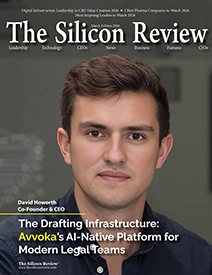>>
Technology>>
Cloud>>
Google Launches Ironwood TPUs ...Google Launches Ironwood TPUs and Axion VMs
The Silicon Review
10 November, 2025
Google announces Ironwood TPUs general availability and new Axion VMs to power the next generation of AI inference workloads.
Google Cloud has announced the general availability of its Ironwood Tensor Processing Units and introduced new Axion virtual machines, positioning the platform to dominate the rapidly expanding AI inference market. These specialized hardware offerings represent Google's most significant infrastructure advancement since its initial TPU launch, specifically optimized for running trained AI models at massive scale rather than just training them. The launch creates immediate competitive pressure on Amazon Web Services, Microsoft Azure, and specialized cloud computing providers to accelerate their own inference-optimized infrastructure roadmaps. For enterprises deploying AI applications, this advancement signals a crucial shift toward cost-effective, high-performance inference capabilities that could dramatically reduce the operational expenses of running production AI systems at scale.
Ironwood's inference-specific architecture contrasts sharply with the training-focused hardware that has dominated the AI infrastructure landscape until now. While previous generations prioritized raw computational power for model development, Google is delivering specialized silicon optimized for the different computational patterns and latency requirements of production inference workloads. This architectural hardware specialization matters because it addresses the fundamental economic challenge of scaling AI from experimentation to enterprise deployment, potentially reducing inference costs by orders of magnitude while improving performance for real-world applications serving millions of users.
For CTOs and infrastructure leaders, Google's launch represents both an immediate opportunity and strategic imperative. The immediate implication is the need to reevaluate cloud provider selection criteria based on inference performance and cost rather than just training capabilities. The forward-looking insight is clear: the future of enterprise AI will be won by organizations that optimize their inference infrastructure for scale and efficiency, not just those with the most advanced models. Companies that delay migrating to inference-optimized platforms risk being burdened with unsustainable operational costs as their AI applications scale, while early adopters will gain significant competitive advantages through faster, cheaper, and more reliable AI services that can handle exponential user growth.





_2025-12-15_12-44-58.webp)